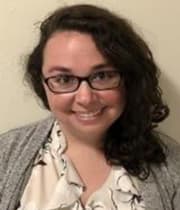Navos staff member reflects on 30 years in chemical dependency field and donor impact

In 1993, chemical dependency professional Allen Benson felt called to the field after witnessing substance use disorder’s role in houselessness during his time as a chaplain.
“The extended care unit was for homeless men who were too sick to be on the street, but not sick enough to be in the hospital,” Benson explains of his work at Seattle’s Union Gospel Mission. “About 85 percent of the men on the extended care floor had substance use issues. As a result of that, I went to Seattle Central Community College to take the classes necessary to better help the population I was serving. There’s such a demand for those services and for more people to enter the field.”
This year marks Benson’s 30th year as a chemical dependency professional and his 15th year at Navos’ donor-supported substance use disorder program, which helps clients achieve their individual recovery goals.
A disease-based model
Navos’ offerings include intensive outpatient, relapse prevention, outpatient and continuous care. A harm reduction program is also available for clients struggling to commit to full-time treatment — staff motivate clients to the next level or help reduce their substance use in a manageable way.
“We know the concept of what’s successful in treatment in 2023 is totally different than when I started in 1993,” Benson says of this approach. “Addiction is a chronic disease that has no cure, but it can go into remission. When you put it in the category of other illnesses treated with medical support, it helps a person live a life they deserve to live.”
Challenges facing BIPOC clients and the opportunity for change
When addiction isn’t viewed as a disease, the misconception that people are to blame for their substance use disorder often takes hold and fuels stereotypes, according to Benson. Because of these preconceived notions, BIPOC communities have traditionally been denied recovery services — instead, addiction is criminalized and seen as warranting severe punishment instead of treatment.
Thankfully, many community health agencies, such as Navos, seek to support people from all backgrounds and walks of life on the road to recovery.
“I would encourage anybody, if you have a need, seek out the resources, and don’t get caught up in the stereotypes,” Benson says. “It’s not really about what people think of you; it’s what you think about yourself and what you want from yourself in order to change your life.”
Change one life, impact a generation
From Benson’s perspective, meeting the needs of the diverse populations Navos serves requires both resources from the county and support from MultiCare Behavioral Health Foundation donors.
“I’m thankful for all the donors who have a heart for community, mental health and people with mental illness and people with substance use disorders,” he shares. “Because sometimes those diseases aren’t given the same attention (as) other diseases, and it’s the contributions of donors that lift the significance and importance of treating diseases across the board.
“Their contribution is doing wonders,” Benson continues. “One changed life can impact a community, and that community can impact a city, and the city can impact a state, and the state can impact a country. One changed life can really impact a whole generation.”
What's next
- Learn more about MultiCare Behavioral Health Foundation
- Navos helps clients achieve their individual recovery goals
- Donate to help people reclaim their life from addiction




